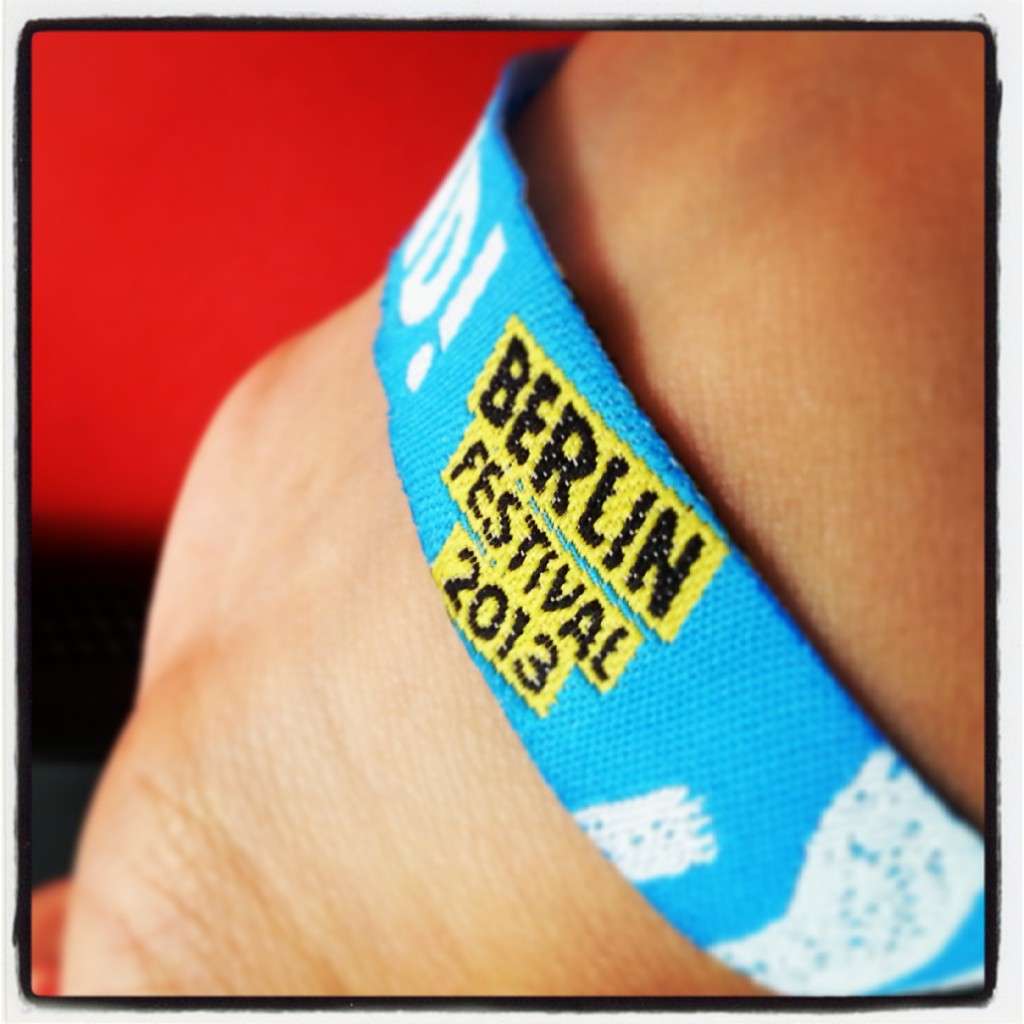A friend of mine happened to have tickets for the Berlin Festival 2013 that was to take place at the famous old Tempelhof airport. As I had never been there before, I decided to go––the fact that there would be concerts and interesting happenings only motivated me more. Little did I expect, however, that the concerts wouldn’t be what occupied my attention the most. So, I am not going to tell you about the bands that played, as you can find that online, nor about how I danced my legs off, because I did not, rather I will tell you about a couple of things that left a huge impression on me.
The first night of the festival we came late. There was no crowd at the entrance and we passed easily into the majestic hall of the old airport. Anyone who has been there cannot but at least contemplate its grandeur and perhaps, as I did, wonder what a shame it is that this building now has no use. Perhaps an organized festival rejuvenates its purpose, if for at least two days. The theme of the festival was very skillfully adapted to its venue. At the doors one could see flight attendants waving red signal signs toward the entrance. Where an old flight schedule used to indicate the departure and arrival of planes, now stood the list of the bands and artists performing.
As we passed the departure hall and moved into the open space where once airplanes used to dock, the sudden volume of the sound from the main stage hit us, and we decided to purchase earplugs at the nearby merchandise stand. We had just barely finished inserting our earplugs when we realized that the music had ended for the day and the rest of the performance was to be continued at various clubs, to which we decided not to go. As we were exiting along with hundreds of people, we found ourselves in a river of humans, in the center of a majestic arrivals/departure hall with earplugs that managed to almost completely mute the sounds. We exchanged looks that expressed wonderment and amazement as this blocking-of-hearing-while-submerged-in-a-river-of-human-beings was creating quite a hallucinogenic experience. It was as if this hall turned into a sort of a passage to a different dimension, as all the people were moving in silence toward the exit. Because we were the only ones standing while everyone else was silently flowing beside us, I felt invisible––like a time traveler witnessing an incredible cosmic phenomenon. Quite paradoxically, the most striking experience from a music festival for me was brought about by silence.
Having learned our lesson, we came on time the next day; however, I was not impressed by the performances on the main stage. It felt like listening to Björk, whose songs always seem like one long song to me, would be much more pleasant in some other setting than at a festival. Although, the two huge electrically charged cylindrical installations that sent thunder currents towards each other in sync with the beats of the music, were, if anything, impressive. As I was getting ready to leave and terminate my boredom, my friend unexpectedly pointed to a Zippo Stage: a silent movie was being screened, followed by live piano music. The concert had five acts, in accordance with which the projected footage changed. The movie was a mash-up of random old scene sequences of Berlin day-to-day life: a woman fixing her make-up while drinking coffee at a restaurant, crowds in the public transport, men arguing on the street, horses eating, children playing, performers preparing in the backstage of a theatre etc. It was brilliantly edited and sound-tracked with the remarkable music by Stephan von Bothmer, a German pianist and composer. The audience was sitting on the floor mesmerized by the sound and the movie projection. I could not decide what I enjoyed more, the music or the film, or the overall atmosphere on the stage. I was completely blown away.
So in the end, completely out of the blue, I did enjoy music at a music festival. Who would have hoped so? As for Mr. Stephan von Bothmer, he will have his next performance in Berlin in November and I know who will be there for sure. In the meantime, you could follow his, and similar works here, or take out “Die Sinfonie der Großstadt,“ a film by Walter Ruttmann (available at the ECLA of Bard library), and enjoy some city-symphony film art. As most of these (silent / silent and orchestra-sound-tracked) films were made before any major Nazi influence was exerted, through them you can get an image of Berlin that is not so common or exploited. Berlin is more than a ‘Second World War monument’, and this kind of movies reminds us of that and lets us enjoy the ordinary scenes rendered in such an extraordinary way.

